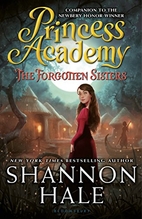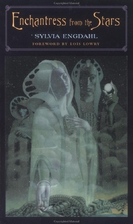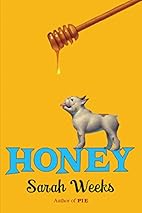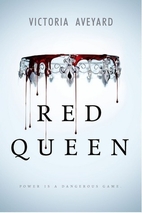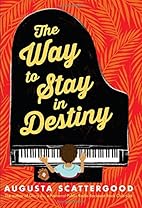And Both Were Young by Madeleine L'Engle is a YA book from the time before there really were YA books.
When
Philippa's father leaves her at a Swiss boarding school, she feels a
bit as if her life is over. Philippa, or Flip, as she likes to be
called, is an introverted, artistic girl, fiercely devoted to her father
and still mourning the fairly recent death of her mother. Boarding
school, with its points and sports and complete lack of privacy, is a
nightmare for her -- and since she spends her time feeling sulky and
sorry for herself, she doesn't make friends among her fellow students,
who take to calling her "Pill." Flip befriends the art teacher, a woman
who is sympathetic to Flip but also not afraid to call her out on her
self-pitying behavior. But apart from art classes, Flip's only recourse
is to escape the school on free afternoons -- and it's during those free
times that she meets Paul, a boy of her own age, who lives in a nearby
chateau. Paul has seen his own share of tragedy, and the two teens bond
over their similar experiences and dispositions. But Paul also has a
mysterious past, one that even he doesn't fully understand. Will Flip
and Paul's friendship help both teens to blossom?
This was a
favorite of mine from my early teen years. I actually liked it better
than a lot of Madeleine L'Engle's more well-known works, possibly
because it's a simpler, more straightforward story, but more likely
because I saw myself in Flip's introversion and social awkwardness. Now,
encountering it as an adult, it remains a gentle, enjoyable read. Flip
and Paul both undergo some painful, realistic character development, and
the alpine setting is as lovely as I recall from those first times
reading it. The romance angle is very slight, compared to what you see
in more recent young adult literature, making this book perfect for
young or conservative teens.
(Reviewed from my personally purchased copy.)
Tuesday, April 28, 2015
Monday, April 27, 2015
The Forgotten Sisters by Shannon Hale
The Forgotten Sisters by Shannon Hale is the third book in the Princess Academy series.
After an extended visit to the capitol city, Miri is homesick for Mt. Eskel. She's anxious to return to her family and get on with her life -- but a last-minute request from the king throws all of her plans into confusion. With the nation on the brink of war, the king must forge an alliance with a neighboring country, and for that, a royal bride is needed. Miri, as a Princess Academy graduate, is expected to travel to where three royal cousins live in a remote, swampy area, and see that they are trained in all ways befitting princesses. When Miri arrives in the swamp, she discovers that the royal cousins have been living in poverty, hunting their own food, and sleeping on the ground in their little linder house. The girls have as little training as Miri and her friends had at the start of their own Princess Academy days -- and less inclination to cooperate with their tutor! But as Miri gets to know her new charges, she finds herself beginning to care for them and respect them for their unique strengths, and they eventually learn to trust and respect her, too. But, isolated as they are in the swamp, it's hard to know what's happening in the kingdom. Is the Princess Academy still on, or is war already raging through the land?
I do love this series, which is populated throughout with strong female characters in interesting settings. It's not strictly necessary to read the other two books before you read this one -- the story stands on its own -- but the book does frequently reference characters and events from previous books, so I'd recommend starting at the beginning of the series. For readers familiar with the series, I'll say that I liked this one slightly more than Palace of Stone, but not quite as much as the original Princess Academy. But I liked all three quite well, so it's just a matter of degree.
(Reviewed from a copy borrowed through my library system.)
After an extended visit to the capitol city, Miri is homesick for Mt. Eskel. She's anxious to return to her family and get on with her life -- but a last-minute request from the king throws all of her plans into confusion. With the nation on the brink of war, the king must forge an alliance with a neighboring country, and for that, a royal bride is needed. Miri, as a Princess Academy graduate, is expected to travel to where three royal cousins live in a remote, swampy area, and see that they are trained in all ways befitting princesses. When Miri arrives in the swamp, she discovers that the royal cousins have been living in poverty, hunting their own food, and sleeping on the ground in their little linder house. The girls have as little training as Miri and her friends had at the start of their own Princess Academy days -- and less inclination to cooperate with their tutor! But as Miri gets to know her new charges, she finds herself beginning to care for them and respect them for their unique strengths, and they eventually learn to trust and respect her, too. But, isolated as they are in the swamp, it's hard to know what's happening in the kingdom. Is the Princess Academy still on, or is war already raging through the land?
I do love this series, which is populated throughout with strong female characters in interesting settings. It's not strictly necessary to read the other two books before you read this one -- the story stands on its own -- but the book does frequently reference characters and events from previous books, so I'd recommend starting at the beginning of the series. For readers familiar with the series, I'll say that I liked this one slightly more than Palace of Stone, but not quite as much as the original Princess Academy. But I liked all three quite well, so it's just a matter of degree.
(Reviewed from a copy borrowed through my library system.)
Monday, April 20, 2015
Enchantress from the Stars by Sylvia Engdahl
Enchantress from the Stars by Sylvia Engdahl is a science fiction story with a fantasy feel.
Elana is a young woman from an advanced civilization, in training to be part of the anthropology service. She looks forward to a life of traveling the universe, studying younger civilizations, seeing uncharted planets, and having grand adventures. However, when her impulsive nature lands her in the middle of a delicate mission for which she is unprepared, she discovers that the life she's chosen may not be as glamorous as she was imagining. As she, her father, and her fiance try to save one "youngling" culture from another, she finds that it's not possible to remain detached from the people she meets, particularly one young man who may be his planet's best hope for survival.
I found this a quick, enjoyable read, as long as I made an effort to suspend disbelief at some of the tenets of the storyline. (All alien civilizations are basically humanoid and follow the same developmental stages? Hmm...) This book was written 45 years ago, and taking that into consideration, it's an impressive piece of science fiction. Plus, the character development is really good, and the plot (so long as one doesn't spend too much time picking it to pieces) is also fairly good. I'd recommend it.
(Reviewed from my personally purchased copy.)
Elana is a young woman from an advanced civilization, in training to be part of the anthropology service. She looks forward to a life of traveling the universe, studying younger civilizations, seeing uncharted planets, and having grand adventures. However, when her impulsive nature lands her in the middle of a delicate mission for which she is unprepared, she discovers that the life she's chosen may not be as glamorous as she was imagining. As she, her father, and her fiance try to save one "youngling" culture from another, she finds that it's not possible to remain detached from the people she meets, particularly one young man who may be his planet's best hope for survival.
I found this a quick, enjoyable read, as long as I made an effort to suspend disbelief at some of the tenets of the storyline. (All alien civilizations are basically humanoid and follow the same developmental stages? Hmm...) This book was written 45 years ago, and taking that into consideration, it's an impressive piece of science fiction. Plus, the character development is really good, and the plot (so long as one doesn't spend too much time picking it to pieces) is also fairly good. I'd recommend it.
(Reviewed from my personally purchased copy.)
House of Secrets by Chris Columbus and Ned Vizzini
House of Secrets by Chris Columbus and Ned Vizzini is a juvenile fantasy adventure.
The Walker family has fallen into a bit of hard luck. Dr. Walker has lost his job after an embarrassing incident, and the family is hoping to relocate, but homes in San Francisco are mostly far out of their price range. When the real estate agent shows them Kristoff House, a lovely Victorian in a prestigious neighborhood, they jump at the property when they learn that it is inexplicably well within their price range. Of course, if something seems to good to be true, it probably is. Shortly after they move in, the Walkers are visited by an old witch who has a grudge against their family, and nefarious plans for them that cause the Walker children, Cordelia, Brendan, and Eleanor, to be trapped in a fictional fantasy world peopled by barbarians, giants, and pirates. She will only let them escape if they obtain for her the mysterious Book of Doom and Desire that appears at key points during their adventure. However, giving the book to the witch might just plunge the entire world into chaos. Is there any way that the Walkers can find their own way back to their world?
This book has a promising plot, and the sort of cinematic sensibilities you'd expect from Chris Columbus, who has directed his share of epic fantasies. Unfortunately, the book is marked by a lack of character development and a tendency to rush from one far-fetched adventure to another, to the point that the story didn't feel like it was progressing at all, just running along like a hamster on a wheel. This is another juvenile fantasy that may appeal to young readers who are enthusiastic about fantasy and adventure, but is unlikely to find many fans among more discerning readers.
(Reviewed from an e-audiobook borrowed through my library system.)
The Walker family has fallen into a bit of hard luck. Dr. Walker has lost his job after an embarrassing incident, and the family is hoping to relocate, but homes in San Francisco are mostly far out of their price range. When the real estate agent shows them Kristoff House, a lovely Victorian in a prestigious neighborhood, they jump at the property when they learn that it is inexplicably well within their price range. Of course, if something seems to good to be true, it probably is. Shortly after they move in, the Walkers are visited by an old witch who has a grudge against their family, and nefarious plans for them that cause the Walker children, Cordelia, Brendan, and Eleanor, to be trapped in a fictional fantasy world peopled by barbarians, giants, and pirates. She will only let them escape if they obtain for her the mysterious Book of Doom and Desire that appears at key points during their adventure. However, giving the book to the witch might just plunge the entire world into chaos. Is there any way that the Walkers can find their own way back to their world?
This book has a promising plot, and the sort of cinematic sensibilities you'd expect from Chris Columbus, who has directed his share of epic fantasies. Unfortunately, the book is marked by a lack of character development and a tendency to rush from one far-fetched adventure to another, to the point that the story didn't feel like it was progressing at all, just running along like a hamster on a wheel. This is another juvenile fantasy that may appeal to young readers who are enthusiastic about fantasy and adventure, but is unlikely to find many fans among more discerning readers.
(Reviewed from an e-audiobook borrowed through my library system.)
Monday, April 6, 2015
The Penderwicks in Spring by Jeanne Birdsall
The Penderwicks in Spring by Jeanne Birdsall is the fourth volume in one of my favorite series for young readers.
Just like that, the three older Penderwick sisters are teenagers, and the focus shifts to Batty, Ben, and Lydia, the younger Penderwicks -- but mostly Batty. No longer a charming toddler wearing butterfly wings, Batty is now a fifth grader, with increasingly complex problems of her own. Six months after the death of Hound Penderwick, the best dog ever, Batty still grieves and still believes that it was somehow her fault, despite the reassurances of her family and the vet. And despite the reassurances of her parents, Batty can't help but worry over the family finances, strained by supporting the grocery habits of Jane and Skye's friends, not to mention Rosalind's college tuition. Batty knows it's a bad time to ask for anything expensive, but she has a wonderful secret: her voice has suddenly developed a smooth, mature tone, and the new music teacher at school is encouraging her to get voice lessons. Maybe she can find a way to earn some money on her own? She'd love to talk the matter over with Jeffrey, an honorary Penderwick himself and Batty's mentor in all things musical (since the rest of the family can't carry a tune in a bucket), but Jeffrey's relationship with Skye has gone all prickly and difficult, so he's not likely to be found around the Penderwick household very much any more. And then, just when things seem to be going extraordinarily well, with a visit from both Rosalind and Jeffrey in the offing, Batty learns a devastating secret that threatens to destroy her emotional stability. Who can she talk to about this dreadful thing?
I can easily wax rhapsodic over the Penderwicks series, which manages to feel both modern and nostalgic. I was a little sad to learn that this book skipped forward several years, but the charms of the younger Penderwicks soon dispelled my melancholy. And one of the benefits of the fast-forward is that this book stands well on its own -- readers who have not yet enjoyed the first three books in the series can start here and not feel like they are missing too much, I think. Of course, why would you want to do so, when the whole series is such a treat? This fourth book achieves more depth than its predecessors, while still managing to be funny and delightful and sweet but not cloying. This may be the best book in an already excellent series. I'll be crossing my fingers for it when awards season rolls around.
(Reviewed from a copy borrowed through my library system -- but I immediately went and bought a copy for myself. It's that good.)
Just like that, the three older Penderwick sisters are teenagers, and the focus shifts to Batty, Ben, and Lydia, the younger Penderwicks -- but mostly Batty. No longer a charming toddler wearing butterfly wings, Batty is now a fifth grader, with increasingly complex problems of her own. Six months after the death of Hound Penderwick, the best dog ever, Batty still grieves and still believes that it was somehow her fault, despite the reassurances of her family and the vet. And despite the reassurances of her parents, Batty can't help but worry over the family finances, strained by supporting the grocery habits of Jane and Skye's friends, not to mention Rosalind's college tuition. Batty knows it's a bad time to ask for anything expensive, but she has a wonderful secret: her voice has suddenly developed a smooth, mature tone, and the new music teacher at school is encouraging her to get voice lessons. Maybe she can find a way to earn some money on her own? She'd love to talk the matter over with Jeffrey, an honorary Penderwick himself and Batty's mentor in all things musical (since the rest of the family can't carry a tune in a bucket), but Jeffrey's relationship with Skye has gone all prickly and difficult, so he's not likely to be found around the Penderwick household very much any more. And then, just when things seem to be going extraordinarily well, with a visit from both Rosalind and Jeffrey in the offing, Batty learns a devastating secret that threatens to destroy her emotional stability. Who can she talk to about this dreadful thing?
I can easily wax rhapsodic over the Penderwicks series, which manages to feel both modern and nostalgic. I was a little sad to learn that this book skipped forward several years, but the charms of the younger Penderwicks soon dispelled my melancholy. And one of the benefits of the fast-forward is that this book stands well on its own -- readers who have not yet enjoyed the first three books in the series can start here and not feel like they are missing too much, I think. Of course, why would you want to do so, when the whole series is such a treat? This fourth book achieves more depth than its predecessors, while still managing to be funny and delightful and sweet but not cloying. This may be the best book in an already excellent series. I'll be crossing my fingers for it when awards season rolls around.
(Reviewed from a copy borrowed through my library system -- but I immediately went and bought a copy for myself. It's that good.)
Sunday, April 5, 2015
Honey by Sarah Weeks
Honey by Sarah Weeks is a sweet story of family, secrets, misunderstandings, and nail polish.
It all starts with a late-night phone call: ten-year-old Melody overhears her father calling someone "Honey," and she couldn't be more thrilled. After all, Melody's mother died when Melody was born, and she longs for a loving stepmother -- maybe someone who will make cookies, like her friend Nick's stepmother Jenny. Melody is determined to figure out who in their small town could be her father's love interest . . . but what if it's someone terrible? Suddenly, Melody is not as excited about the possibility of her father dating, but she's still determined to get to the bottom of things. And what better place to track down a rumor than the town's new beauty salon?
Remember how, a few reviews back, I was commenting on how many folksy small-town stories there are, and how few of them are done well? Well, honey, this is one of the few! Weeks does an excellent job of portraying Melody's complicated emotions surrounding the mother she never got a chance to know, the father she adores, the stepmother she hopes for, and the one she fears she might get. The secondary characters are quirky but not unbelievable, and the story is sweet but not saccharine. This is a book to savor!
(Reviewed from a finished copy, courtesy of the publisher.)
It all starts with a late-night phone call: ten-year-old Melody overhears her father calling someone "Honey," and she couldn't be more thrilled. After all, Melody's mother died when Melody was born, and she longs for a loving stepmother -- maybe someone who will make cookies, like her friend Nick's stepmother Jenny. Melody is determined to figure out who in their small town could be her father's love interest . . . but what if it's someone terrible? Suddenly, Melody is not as excited about the possibility of her father dating, but she's still determined to get to the bottom of things. And what better place to track down a rumor than the town's new beauty salon?
Remember how, a few reviews back, I was commenting on how many folksy small-town stories there are, and how few of them are done well? Well, honey, this is one of the few! Weeks does an excellent job of portraying Melody's complicated emotions surrounding the mother she never got a chance to know, the father she adores, the stepmother she hopes for, and the one she fears she might get. The secondary characters are quirky but not unbelievable, and the story is sweet but not saccharine. This is a book to savor!
(Reviewed from a finished copy, courtesy of the publisher.)
Saturday, April 4, 2015
Red Queen by Victoria Aveyard
Red Queen by Victoria Aveyard is another hot new YA dystopia.
In Mare Barrow's world, there are Reds, and there are Silvers. Reds are the ordinary people: the workers, soldiers, commoners. Silvers are the wealthy and powerful. The difference is a matter of blood: Silvers have evolved with extraordinary abilities, and Reds have not. Mare is a Red, living a hand-to-mouth existence and picking pockets to get by, dreading her mandatory conscription into the army on her 18th birthday (a fate that has already befallen her three older brothers). When she picks the wrong pocket and gets caught, Mare expects harsh punishment, but instead the stranger whose pocket she attempted to pick gives her money and arranges for her to get a job at the palace -- a job that will keep her out of the army and pay well enough that she will be able to contribute more to her family than she ever could have by stealing. But when Mare finds herself once again in the wrong place at the wrong time, she and everyone around her discovers that she has a rare talent, one not held by any Silver. The king and queen go to great lengths to cover up Mare's abilities, taking her into the royal court and introducing her as a Silver raised by a Red family, even affiancing her to their younger son. But a rebellion is rising in the land, and Mare finds herself pulled in two different directions. She must appear to embrace her life as a Silver, or she will be killed -- the king and queen have been very clear on this point. But her heart is still with the Reds. Can she find a way to help the rebel forces from within the palace?
If some of these plot points seem familiar, it's probably because this book has a lot of similarities to other recent YA dystopias. It's well-trodden ground at this point: the oppressive regime, the feisty heroine with special powers, the love triangles, the fighting lessons, the plot twists. That doesn't necessarily make this book less enjoyable than its counterparts, at least for readers who like this sort of book. I thought the initial premise was interesting and the pacing was good -- it kept me reading even past the plot holes that I can see, looking back. Mare didn't seem to have any chemistry with any of her potential romantic interests, but I think that might have been at least somewhat intentional on the author's part. This is a series that I'll probably continue reading, and will definitely recommend to teens looking for an action-packed dystopian story.
(Reviewed from a finished copy, courtesy of the publisher.)
In Mare Barrow's world, there are Reds, and there are Silvers. Reds are the ordinary people: the workers, soldiers, commoners. Silvers are the wealthy and powerful. The difference is a matter of blood: Silvers have evolved with extraordinary abilities, and Reds have not. Mare is a Red, living a hand-to-mouth existence and picking pockets to get by, dreading her mandatory conscription into the army on her 18th birthday (a fate that has already befallen her three older brothers). When she picks the wrong pocket and gets caught, Mare expects harsh punishment, but instead the stranger whose pocket she attempted to pick gives her money and arranges for her to get a job at the palace -- a job that will keep her out of the army and pay well enough that she will be able to contribute more to her family than she ever could have by stealing. But when Mare finds herself once again in the wrong place at the wrong time, she and everyone around her discovers that she has a rare talent, one not held by any Silver. The king and queen go to great lengths to cover up Mare's abilities, taking her into the royal court and introducing her as a Silver raised by a Red family, even affiancing her to their younger son. But a rebellion is rising in the land, and Mare finds herself pulled in two different directions. She must appear to embrace her life as a Silver, or she will be killed -- the king and queen have been very clear on this point. But her heart is still with the Reds. Can she find a way to help the rebel forces from within the palace?
If some of these plot points seem familiar, it's probably because this book has a lot of similarities to other recent YA dystopias. It's well-trodden ground at this point: the oppressive regime, the feisty heroine with special powers, the love triangles, the fighting lessons, the plot twists. That doesn't necessarily make this book less enjoyable than its counterparts, at least for readers who like this sort of book. I thought the initial premise was interesting and the pacing was good -- it kept me reading even past the plot holes that I can see, looking back. Mare didn't seem to have any chemistry with any of her potential romantic interests, but I think that might have been at least somewhat intentional on the author's part. This is a series that I'll probably continue reading, and will definitely recommend to teens looking for an action-packed dystopian story.
(Reviewed from a finished copy, courtesy of the publisher.)
Friday, April 3, 2015
The Unwanteds by Lisa McMann
The Unwanteds by Lisa McMann is a dystopian fantasy for young readers.
In the highly regimented land of Quill, children who exhibit even the slightest leanings toward creativity are Eliminated at the age of 13, sent to the Death Farm. Alex Stowe, who has been known to take a stick and draw in the mud, knew he was going to be Eliminated, but he consoled himself with the thought that his twin brother Aaron would not be. But Alex soon learns that the Death Farm is really the land of Artimé, where creativity is encouraged and magic is possible. Alex embraces his new life, but he wonders: why couldn't his twin have come, too? Will Alex's desire to rescue his brother from his gray, dingy life in Quill precipitate a war between the two lands?
I had a really hard time getting into this book. I listened to the audiobook, narrated by Simon Jones. I've listened to other books Jones has read and enjoyed them, but even his narration was not enough to save this one for me. I just found the premise too hard to swallow: death for all children caught exhibiting creativity? Really? And everyone just went along with this? I also found the wise old wizard who rules Artimé way too Dumbledore-esque. Maybe that's because the publisher made the mistake of touting this at Harry Potter meets The Hunger Games, a level of hyperbole that's bound to get a mediocre book into trouble when harsh reality meets with high reader expectations. I do think some young readers will enjoy the art-based magic of Artimé and the interactions between the young characters, but it's not one I'd particularly recommend.
(Reviewed from an e-audiobook borrowed through my library system.)
In the highly regimented land of Quill, children who exhibit even the slightest leanings toward creativity are Eliminated at the age of 13, sent to the Death Farm. Alex Stowe, who has been known to take a stick and draw in the mud, knew he was going to be Eliminated, but he consoled himself with the thought that his twin brother Aaron would not be. But Alex soon learns that the Death Farm is really the land of Artimé, where creativity is encouraged and magic is possible. Alex embraces his new life, but he wonders: why couldn't his twin have come, too? Will Alex's desire to rescue his brother from his gray, dingy life in Quill precipitate a war between the two lands?
I had a really hard time getting into this book. I listened to the audiobook, narrated by Simon Jones. I've listened to other books Jones has read and enjoyed them, but even his narration was not enough to save this one for me. I just found the premise too hard to swallow: death for all children caught exhibiting creativity? Really? And everyone just went along with this? I also found the wise old wizard who rules Artimé way too Dumbledore-esque. Maybe that's because the publisher made the mistake of touting this at Harry Potter meets The Hunger Games, a level of hyperbole that's bound to get a mediocre book into trouble when harsh reality meets with high reader expectations. I do think some young readers will enjoy the art-based magic of Artimé and the interactions between the young characters, but it's not one I'd particularly recommend.
(Reviewed from an e-audiobook borrowed through my library system.)
Thursday, April 2, 2015
The Way to Stay in Destiny by Augusta Scattergood
The Way to Stay in Destiny by Augusta Scattergood is a folksy story of Florida, baseball, music, and family.
Ever since his parents died when he was very young, Theo Thomas has lived with his grandparents on their Kentucky farm -- but now that his grandparents can't take care of themselves, much less him, his Uncle Raymond is his reluctant new caregiver. Uncle Raymond is a Vietnam vet with a chip on his shoulder and little patience for his young nephew. With Theo in tow, Uncle Raymond heads for Destiny, Florida, where he has a new job and a room reserved at Miss Sister Grandersole's Boarding House and Dance Studio. Theo's not too sure about his new town. There are only two things that he really likes: baseball and playing the piano. Miss Sister has a beautiful piano in her dance studio, but Uncle Raymond hates music and won't allow Theo to play -- and as for baseball, who knows if they'll even be in town long enough for Theo to join a team? But as Theo settles in and makes a new friend who is just as baseball-crazy as he is, he's determine to find a way to stay in Destiny -- even though his Uncle Raymond seems to be determined to find a way to leave.
Ah, these folksy small-town stories. I have a limited amount of patience for them. Why do I keep picking them up, you might ask? Well, when they are done right, they can be excellent. Alas, this one was just okay. I felt like there was too little motivation for some of the decisions made by the characters, and the whole baseball school project/mystery just irritated me. But if you enjoy this sort of story, you're likely to find it much more charming than I did. I'm just not the right reader for this book.
(Reviewed from a finished copy, courtesy of the publisher.)
Ever since his parents died when he was very young, Theo Thomas has lived with his grandparents on their Kentucky farm -- but now that his grandparents can't take care of themselves, much less him, his Uncle Raymond is his reluctant new caregiver. Uncle Raymond is a Vietnam vet with a chip on his shoulder and little patience for his young nephew. With Theo in tow, Uncle Raymond heads for Destiny, Florida, where he has a new job and a room reserved at Miss Sister Grandersole's Boarding House and Dance Studio. Theo's not too sure about his new town. There are only two things that he really likes: baseball and playing the piano. Miss Sister has a beautiful piano in her dance studio, but Uncle Raymond hates music and won't allow Theo to play -- and as for baseball, who knows if they'll even be in town long enough for Theo to join a team? But as Theo settles in and makes a new friend who is just as baseball-crazy as he is, he's determine to find a way to stay in Destiny -- even though his Uncle Raymond seems to be determined to find a way to leave.
Ah, these folksy small-town stories. I have a limited amount of patience for them. Why do I keep picking them up, you might ask? Well, when they are done right, they can be excellent. Alas, this one was just okay. I felt like there was too little motivation for some of the decisions made by the characters, and the whole baseball school project/mystery just irritated me. But if you enjoy this sort of story, you're likely to find it much more charming than I did. I'm just not the right reader for this book.
(Reviewed from a finished copy, courtesy of the publisher.)
Wednesday, April 1, 2015
All Fall Down by Ally Carter
All Fall Down by Ally Carter is the first book in her new Embassy Row series.
When she was 13, Grace saw her mother die -- she heard the explosion; she saw the scarred man with the gun. But nobody believes her. The fire that killed her mother, she is told, was a tragic accident, not a bomb. There was no scarred man, no gunshot. Now, at age 16, Grace has been sent to live with her grandfather, the US Ambassador to the small European nation of Adria. Last time she was in Adria, she broke her leg jumping off the wall between the German and Canadian embassies, so she has something of a reputation for being a daredevil and a troublemaker -- not the best combination for an ambassador's granddaughter. Add to that the new accusation of craziness, and you can see why her grandfather's staff seems to be watching over her with a high degree of solicitude. But Grace still manages to find herself in places she's not supposed to be, overhearing conversations not meant for her ears. The Scarred Man is is Adria -- and he's about to kill again. The only people who believe Grace are her new friends, other misfit children of diplomatic staff. But what can a handful of teenagers do against an international assassin?
I found this book interesting, but a little frustrating. Part of the problem, of course, is that it's setting up a new series, so a lot of the hints dropped in this book presumably foreshadow major plot points in future books. The ending, while not exactly a cliffhanger, does leave readers wanting more, as it ends with Grace just about to get some answers regarding her mother's death. I thought that there were some obvious questions that Grace never asked (like, why would anyone want to kill her mother, an antiques dealer and wife of a minor military officer?). I also thought that the tunnel network under the city was way too convenient -- easily discovered by Grace, but apparently not by anyone else in the city. And there's a very slight romance angle that I just didn't buy. In many ways, this was a typical Ally Carter novel -- action, suspense, and a generally fast-moving plot, with lots of snappy dialogue -- but I didn't find it quite satisfying.
(Reviewed from a finished copy, courtesy of the publisher.)
Subscribe to:
Comments (Atom)

